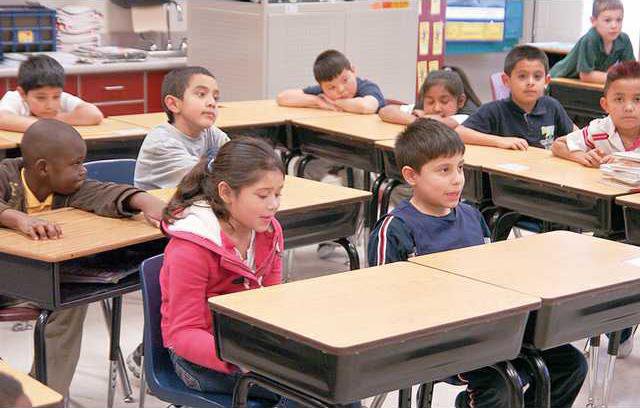Despite efforts to get a quality teacher in every classroom, something — besides money — is missing from the education equation. Gainesville City Schools is part of a nationwide effort to find out what that is and how to get it.
The American Association of School Administrators, Scholastic and the UCLA Center for Mental Health in Schools are partnering with Gainesville and three other school districts in the Southeast to rethink efforts for addressing barriers to learning and motivating students. Gainesville Superintendent Merrianne Dyer is in Savannah today for a two-day workshop on the Learning Supports Collaborative initiative with superintendents from Jefferson County, Ky., Indian River County, Fla., and Sabine Parish, La.
Scholastic, the global children’s publishing and education company, is providing a $50,000 grant to the national administrators group to support the UCLA center’s yearlong initiative to train educational leaders to consolidate services for a more comprehensive approach for getting healthy students to high school graduation.
Dr. Howard Adelman, professor of psychology and co-director of the UCLA center, said he and co-director Dr. Linda Taylor will help district leaders to streamline existing efforts in a systemic way to help reconnect students with their learning. The Southeast is the first in a series of U.S. regions participating in the initiative, he said.
"What we’re really talking about here is that every school has kids that they wish would benefit from all the effort they’re putting forth and the instruction," Adelman said. "... This is going to be a big shift in making sure there’s a lot more attention to prevention. There is going to be a lot more attention to how they respond to a problem before they get big."
The Learning Supports Collaborative initiative seeks to restructure, transform, enhance and connect school-owned programs and services as well as community resources. It rethinks instructional and developmental components, learning supports and management components and takes a look at barriers to learning in neighborhoods, families and schools.
Dyer said the opportunity to access the UCLA center’s extensive psychological research will help Gainesville educators to more effectively re-engage students.
"Through psychology comes brain research, and we’re not just talking about children here. We’re talking about the people that serve them," she said. "It’s changing the way you look at a plan, and putting in better systems — not more programs."
Dyer said, for example, that Gainesville schools may consolidate family and community supports with graduation efforts.
She said, too, that research from the center supports observations Gainesville educators already have made in realizing second grade is pivotal in developing students’ love or hate of school. Because basic reading skills should be well developed by the end of second grade, kids who were once eager students may start to dislike school if they are struggling readers.
"Students who have a hard time reading, it’s just devastating to them," Dyer said. "They’re apathetic. They lose their confidence. They lose their joy of school. They’re embarrassed. They act out, usually, or they try to hide so no one will notice they can’t read. Then they will start to disconnect from school."
Dyer said the district is trying to identify teachers who excel in reading instruction and place them in second grade. She said those teachers may receive some extra compensation for their valued skills.
"This is almost like putting the gifted athlete first string," she said. "There are some people who are just gifted with language."
Dyer said participating in the initiative also could help the system save money by consolidating services.



